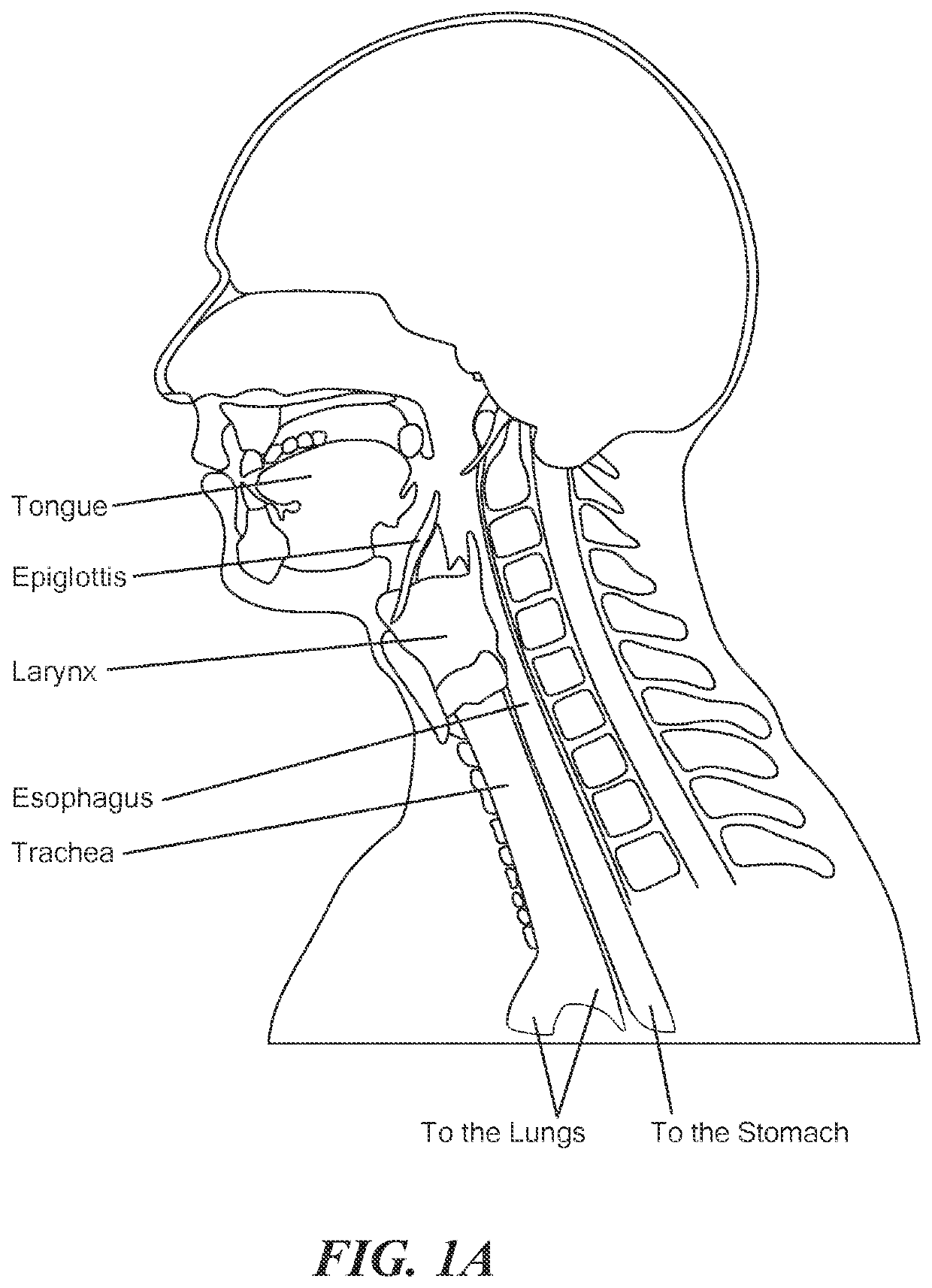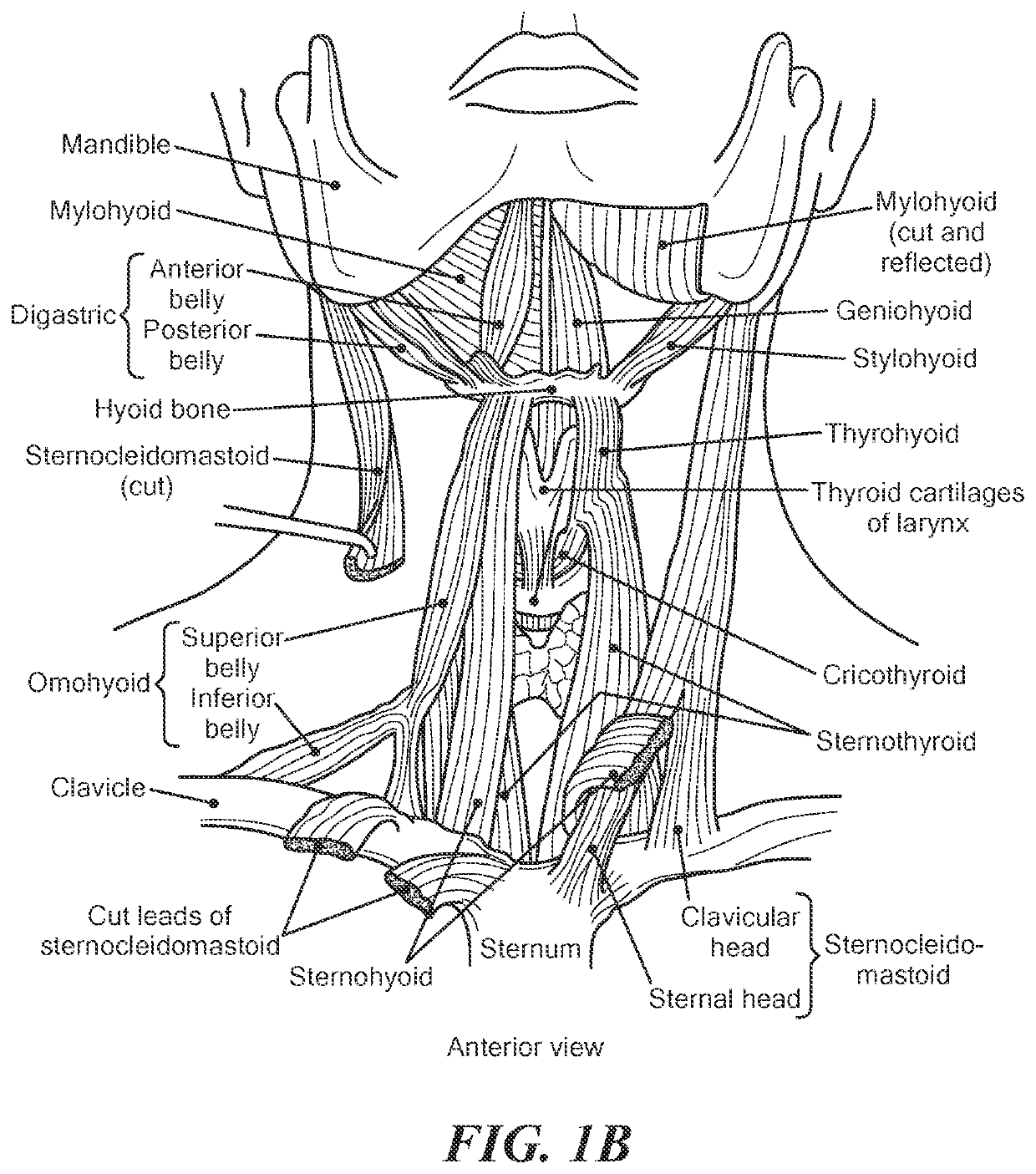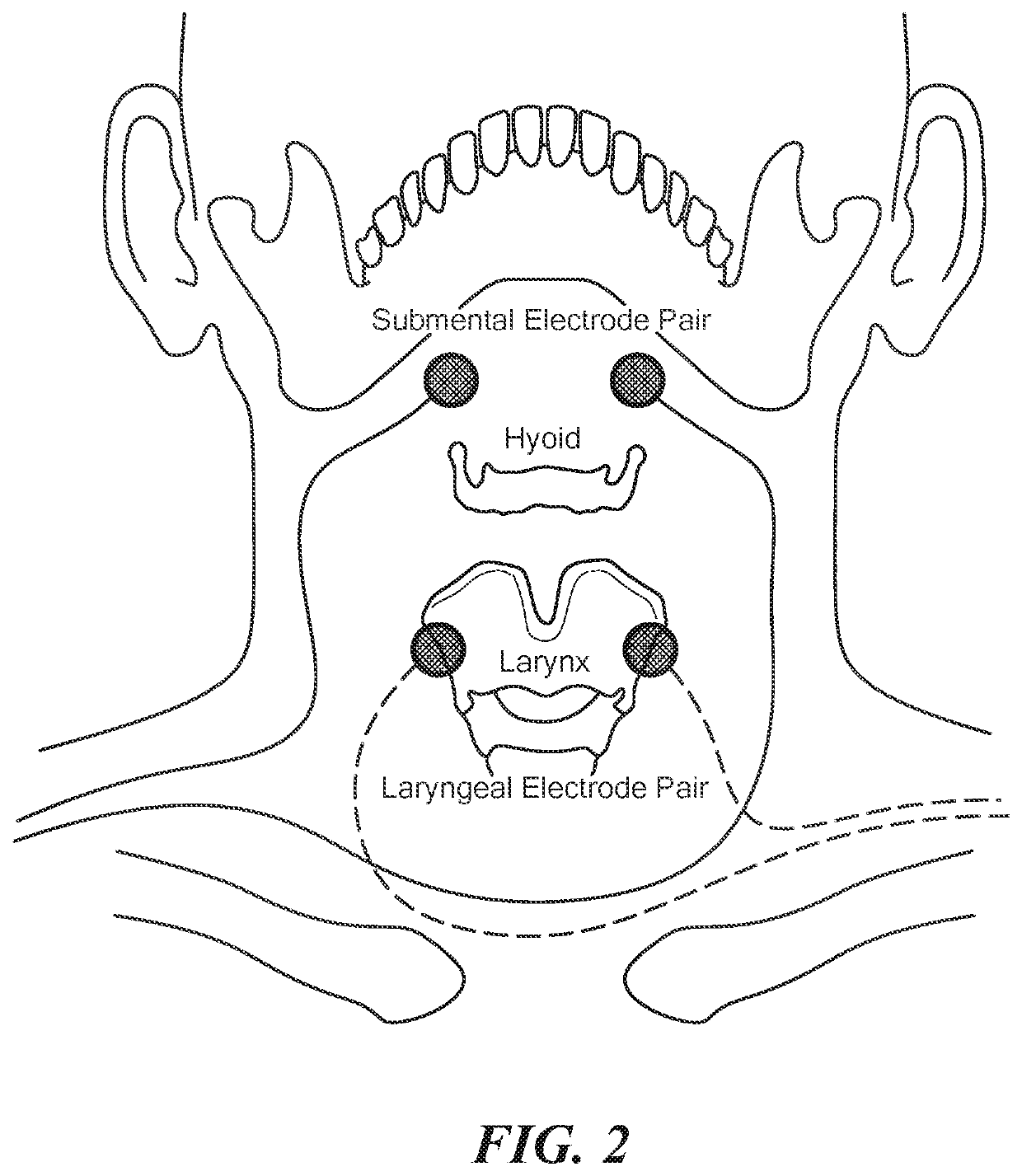Eliciting Swallowing using Electrical Stimulation Applied via Surface Electrodes
a surface electrode and electrical stimulation technology, applied in the field of eliciting swallowing, can solve the problems of poor control of some muscles in the upper respiratory system, insufficient control of those muscles needed for swallowing, and vital and complicated swallowing process
- Summary
- Abstract
- Description
- Claims
- Application Information
AI Technical Summary
Benefits of technology
Problems solved by technology
Method used
Image
Examples
Embodiment Construction
[0015]In accordance with an embodiment of the invention there is provided a method of eliciting a swallowing reflex in a human subject. The method includes generating stimulation signals for eliciting a full swallowing reflex when applied to skin overlying a region of thyroid cartilage in the neck. The stimulation signals are delivered via surface electrodes to the skin overlying at least the region of thyroid cartilage in the neck to elicit the full swallowing reflex in the human subject.
[0016]In accordance with related embodiments of the invention, the stimulation signals may include a bipolar stimulation pulse having a first pulse phase duration of at least 100 ms. Generating the stimulation signals may include increasing a magnitude of the first pulse phase of the bipolar stimulation pulse over time. The first pulse phase of the bipolar stimulation signals may be one of progressively rising, exponentially rising, linearly rising, curvilinearly rising, continuously rising or disc...
PUM
 Login to View More
Login to View More Abstract
Description
Claims
Application Information
 Login to View More
Login to View More - R&D
- Intellectual Property
- Life Sciences
- Materials
- Tech Scout
- Unparalleled Data Quality
- Higher Quality Content
- 60% Fewer Hallucinations
Browse by: Latest US Patents, China's latest patents, Technical Efficacy Thesaurus, Application Domain, Technology Topic, Popular Technical Reports.
© 2025 PatSnap. All rights reserved.Legal|Privacy policy|Modern Slavery Act Transparency Statement|Sitemap|About US| Contact US: help@patsnap.com



